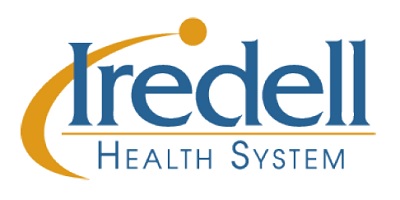
Special to Iredell Free News
Most of us have heard of the thyroid gland, but we may not realize the importance of this gland or what it even really does.
January is Thyroid Awareness Month, the ideal time to learn more about our thyroid and the significant role it plays in our overall health and wellbeing.
The thyroid is a small, butterfly-shaped gland at the front of your neck, right below your Adam’s apple. This gland makes hormones that control nearly every aspect of your body’s function.

“The thyroid is so important because it has an enormous impact on our health by affecting all aspects of metabolism. It also affects the vital functions of our body from skin, to muscles, to the hormonal levels of each individual organ,” said Andrea Colvin, a family nurse practitioner at Stout Internal Medicine & Wellness, part of the Iredell Physician Network.
When your thyroid gland is not functioning properly, it can have serious, life-altering effects on your health.
According to the American Thyroid Association, nearly 20 million Americans have thyroid disease, and up to 60 percent of those are unaware of their condition.
The most common of these diseases is hypothyroidism, or an underactive thyroid. It occurs when your thyroid gland does not make enough hormones to meet your body’s needs. Severe hypothyroidism can be life-threatening, so it’s important to recognize symptoms and receive treatment early.
Causes of Hypothyroidism
In most cases, the main culprit of hypothyroidism is an autoimmune disorder called Hashimoto’s disease, which occurs when your immune system mistakes your thyroid gland cells for a threat and attacks them.
Other causes of hypothyroidism include surgical removal of all or part of the thyroid gland, radiation treatment, thyroid defects present at birth, and certain medications. Sometimes hypothyroidism can occur after pregnancy, but these cases are usually temporary.
Though men can also have hypothyroidism, women are five to eight times more likely to develop the disease, according to Colvin. Those women over the age of 60 have an increased risk.
“Hypothyroidism is more common in women. This is mainly because of hormone imbalance or fluctuations, estrogen, progesterone, and testosterone immune influence, and autoimmune susceptibility,” said Colvin.
Symptoms
When your thyroid gland is underactive and does not produce enough hormones, it can make you feel drained and exhausted. However, hypothyroidism develops slowly.
An underactive thyroid may not cause symptoms early on. That’s because the body tries to compensate by stimulating the thyroid to produce more hormones. This is similar to how you might push the accelerator to give a car more gas when driving up a hill.
But, according to Colvin, as hormone production eventually decreases, you may experience symptoms such as:
• Fatigue
• Feeling cold or chilly
• Dry, itchy skin
• Weight gain
• Constipation
• Dry, thinning hair
• Slow heart rate
• Puffy face
• Sore muscles
• Depression
• Heavy and/or irregular menstrual periods
• A goiter (enlargement of the thyroid) that may look or feel like a lump in the neck
“Many individuals do not even notice the symptoms from months to sometimes years. But it is beneficial to catch hypothyroidism early,” said Colvin.
Diagnosis and Treatment
Everyone feels tired and run-down from time to time, but if you are experiencing more fatigue than normal accompanied by other symptoms, it’s best to speak with your primary care provider.
Hypothyroidism can be diagnosed through routine blood tests. The thyroid stimulating hormone (TSH) level in your blood indicates how well your thyroid gland is working. If hypothyroidism is suspected, more labs can be conducted.
Although hypothyroidism is not permanently curable, luckily, it is treatable.
According to Colvin, treatment for hypothyroidism includes daily use of synthetic hormone therapy. This is a medication that replaces the missing thyroid hormone; the most common form of this medication is levothyroxine. Since hypothyroidism is usually permanent and often progressive, medication must be taken for life.
However, medication dosage can change over time, so regular checkups and blood tests are crucial if you have hypothyroidism.
“If you are having unexplained weight gain or any of the symptoms of hypothyroidism, make sure to communicate your concerns with your provider,” said Colvin. “I encourage annual labs to promote early identification, avoid complications, and aid in the treatment of hypothyroidism.”
LEARN MORE
Andrea Colvin, FNP-C, practices alongside Dr. Stout at Stout Internal Medicine & Wellness. If you would like to schedule an appointment with Colvin, call 704-360-9310.
About Iredell Health System
Iredell Health System includes Iredell Memorial Hospital; Iredell Mooresville; Iredell Home Health; Iredell Wound Care & Hyperbaric Center; Community and Corporate Wellness; Occupational Medicine; the Iredell Physician Network and more. Iredell Memorial Hospital is the largest and only nonprofit hospital in Iredell County. The comprehensive healthcare facility has 247 beds; more than 1,700 employees; and has 260 physicians representing various specialties. Centers of excellence include Women’s and Children’s; Cardiovascular; Cancer; Surgical Services and Wellness & Prevention. The Health System’s newest campus, Iredell Mooresville, is home to the area’s only 24-hour urgent care facility, as well as an ambulatory surgery center, imaging center, rehabilitation services, and physician practices. The mission of Iredell Health System is to inspire wellbeing. For a comprehensive list of services and programs, visit www.iredellhealth.org.



